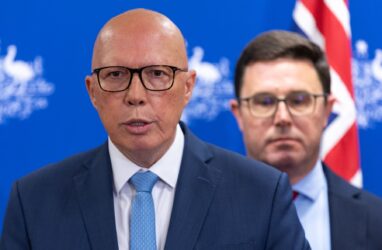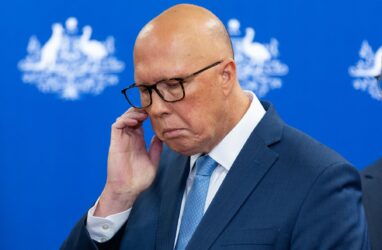Feed aggregator
FEATURE: Canadian election juggles fossil fuels, decarbonisation in face of Trump
UK seeks global green investors with windfarm cash and planning policies
Government is ‘setting up conversations’ as companies arrive in London for clean energy summit
The UK is to woo global green investors, including those scared away from the US by the actions of Donald Trump, by offering cash and infrastructure improvements to encourage companies to set up manufacturing plants and supply chains.
The government will bring forward £300m for offshore windfarms, an area in which the UK retains a lead, and has invited banks and major international companies to a 60-country summit in London this week.
Continue reading...PREVIEW: IEA-UK summit a chance to tackle ‘Trojan horse’ of fossil fuel spending for energy security
Coalition’s nuclear gambit will cost Australia trillions – and permanently gut its industry
The post Coalition’s nuclear gambit will cost Australia trillions – and permanently gut its industry appeared first on RenewEconomy.
Why Peter Dutton won’t stop backflipping on electric vehicles
The post Why Peter Dutton won’t stop backflipping on electric vehicles appeared first on RenewEconomy.
SCOTUS hears arguments in case aiming to revoke California’s clean cars rule
German carbon marketplace acquires project financier
Colombian tax authority sees spike in 2025 carbon revenues
EU’s next Paris commitment coming “in good time”, Commission official promises
Approach to international climate diplomacy “fundamentally different” under Trump 2.0 -former US official
Bites on gladiator bones prove combat with lion
Giant prehistoric kangaroos preferred to ‘chill at home’ and didn’t like to go out much, scientists say
Fossil teeth show species of protemnodon that roamed Australia between 5m and 40,000 years ago lived and died near Queensland caves
- Get our afternoon election email, free app or daily news podcast
Despite their immense size, species of prehistoric giant kangaroos from a site in Queensland were probably homebodies with a surprisingly small range compared to other kangaroos, according to new Australian research.
Protemnodon, which roamed the Australian continent between 5m and 40,000 years ago and is now extinct, was significantly larger than its modern relatives. Some species weighed up to 170kg, making them more than twice as heavy as the largest red kangaroo.
Continue reading...Xi contrasts China’s clean energy promises with Trump turmoil
Remarks by António Guterres follow virtual meeting with world leaders including China’s Xi Jinping
China will continue to push forward on climate, its leader, Xi Jinping, has said while appearing to criticise the “protectionism” of Donald Trump’s tariff policies.
Xi was attending a closed-door virtual meeting with the UN secretary-general, António Guterres, along with Brazil’s president, Luiz Inácio Lula da Silva; the EU commission president, Ursula von der Leyen; and about a dozen other heads of state and government, to discuss the climate crisis.
Continue reading...Verra speeds up carbon project reviews after adopting risk-based approach
Project developer teams up with Indonesian company on e-bike carbon programme
Groups launch biodiversity pilot market in Cote d’Ivoire
Consultancy unveils blueprint to scale UK CCS sector via carbon trading
Under half of Norwegian sovereign fund investees view nature as financially significant, report says
BRIEFING: EU green hydrogen ambition thwarted by over-regulation, as race for cheaper alternatives accelerates
‘We don’t call them woolly maggots’: how wildlife campaigners put sheep at heart of rewilding plans
The Wildlife Trusts are in shock after acquiring 4,000 sheep in Rothbury estate deal as part of land restoration project
Woolly maggots, nature-destroyers – sheep are criticised by many conservationists for denuding Britain’s uplands of rare plants and trees.
So The Wildlife Trusts were shocked when they were compelled to buy 4,000 sheep as part of the biggest land restoration project in England.
Continue reading...




